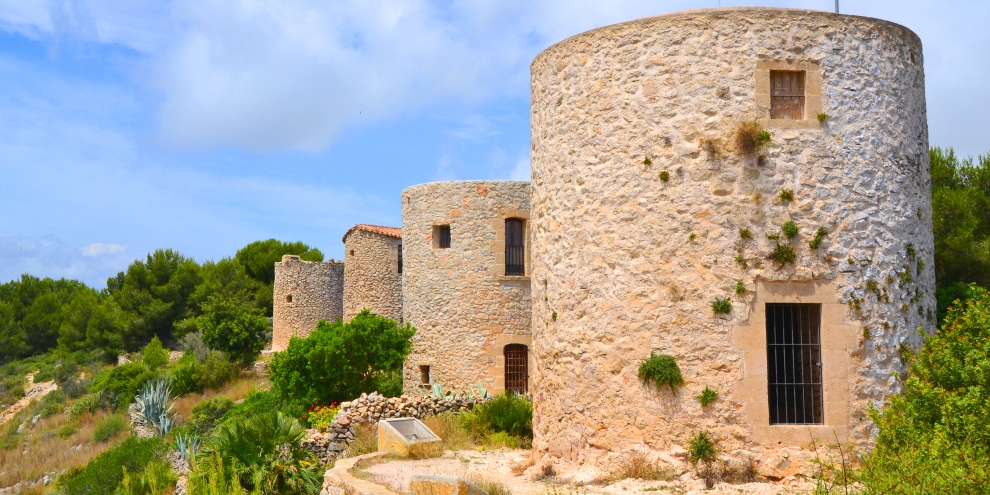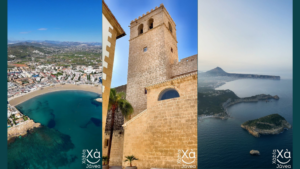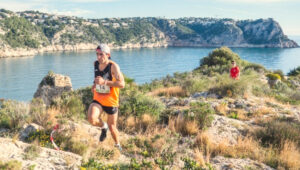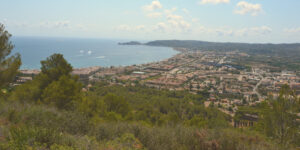The Blat de La Marina project strengthens the recovery of the region’s agricultural past
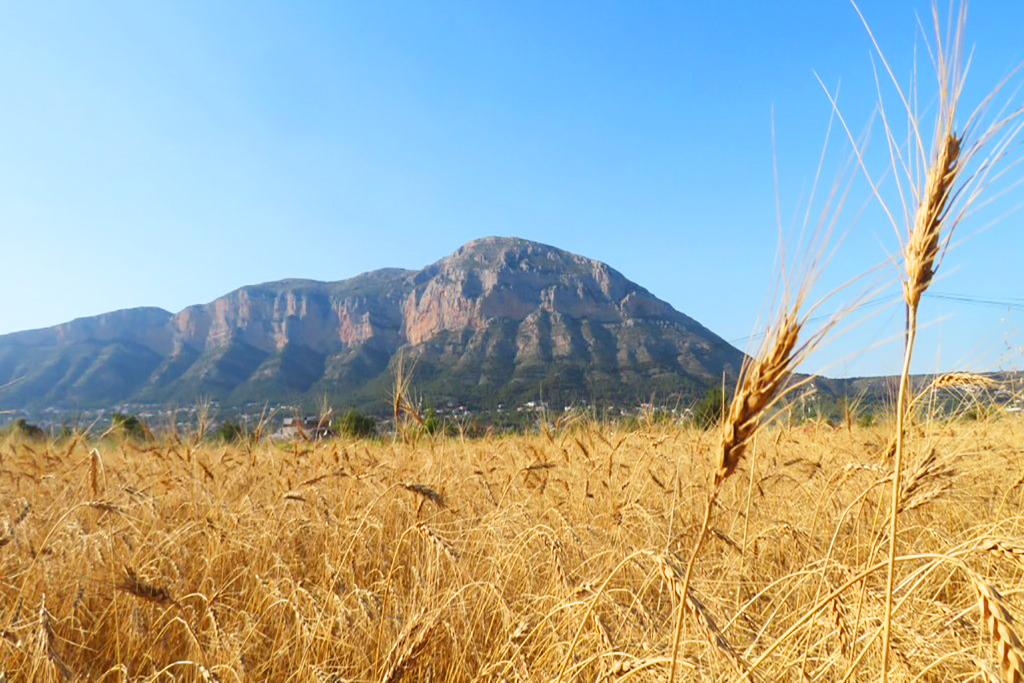
Wednesday 4th August 2021 – ÁLVARO MONFORT with Mike Smith
Who would have thought that the commemoration of the first anniversary of the Mercat del Riurau de Jesús Pobre was going to mean an agricultural revolution in the Marina Alta? The Associació Sociocultural del Mercat needed to have sheaves of wheat to celebrate the Festa del Batre (threshing) and celebrate the first year of a fully consolidated initiative in the region as one of the great attractions on Sundays. The first celebration was popular and, after three years looking for sheaves (garbes in valenciano), bringing them from Carrícola or even harvesting them in Tollos, it reached a conclusion: “Xé, busquem a altres llocs, quan estem a una terra que era productora de blat fa dècades”.
Well, we look elsewhere, when we are in a land that was producing wheat decades ago.
The realization gave way to the hope, especially of the farmers and bakers, who were curious to see if our land remembered what was once seeded and worked in the past, if the dexterity of those men and women who ground the wheat, and even get to knead it, can obtain a 100% local quality product. Like before.
And yes, it seems that our land has a memory. According to Carles Hostalet, coordinator of the Blat de La Marina project, one of the project partners which brought an ancient seed that was once grown at the foot of the Montgó. And recovering the seeds of the past means, in this case, bringing the forgotten or cornered identity to the present. “Putting value on what is ours and, ultimately, recovering self-esteem“. To date, the Blat de La Marina recovery project has harvested 85 bushels (more than 54 hectares).
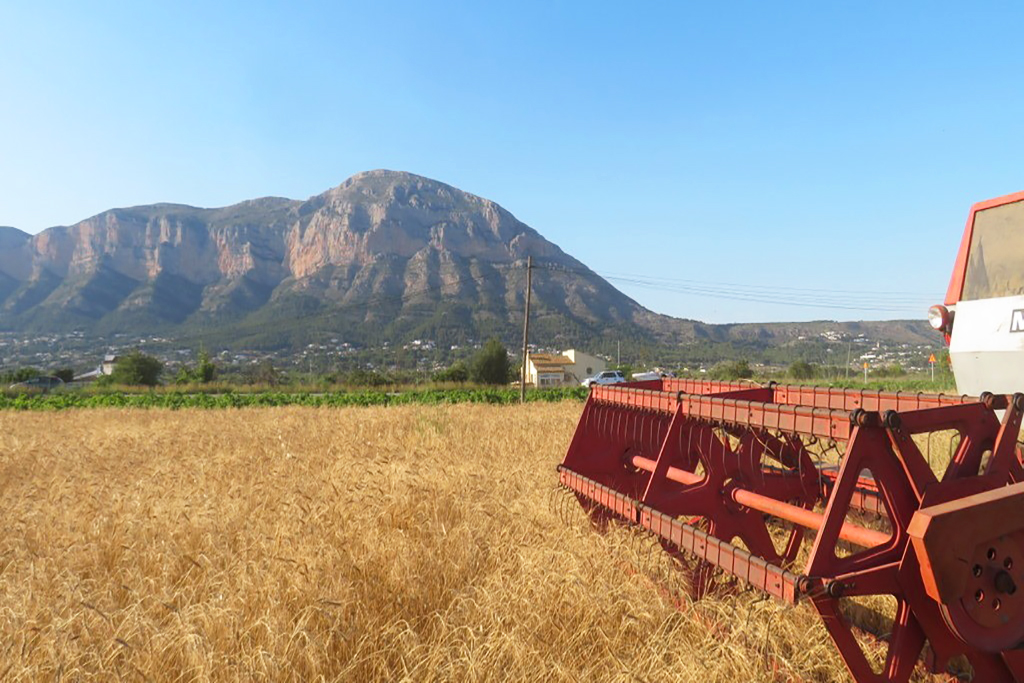
However, bringing yesterday closer to the present has its advantages, and one of them is the technological modernization that makes the arduous tasks of the field much easier. Recently, an attractive crowdfunding proposal was launched by the project for the acquisition of a harvester that would allow to carry out the harvesting before the end of June and stop relying on renting one every year with the associated expense that it involved.
The campaign has been a resounding success and the organization believes that this has been thanks to the fact that “everyone is aware of what is conducive to the common good and this project is at a landscape, biological, economic and identity level“.
Vicent Mahíques participates in the working group that coordinates the planting and harvesting of wheat and tells how each year more abandoned terraces are being recovered and about the interest of many owners to give up their lands to consolidate the initiative. “It is a way of changing the landscape and transforming areas that were lost into living rural fields,” he explained. Of the two original variants with which the cultivation began, they now have six different ones that are perfect for making bread and flour.
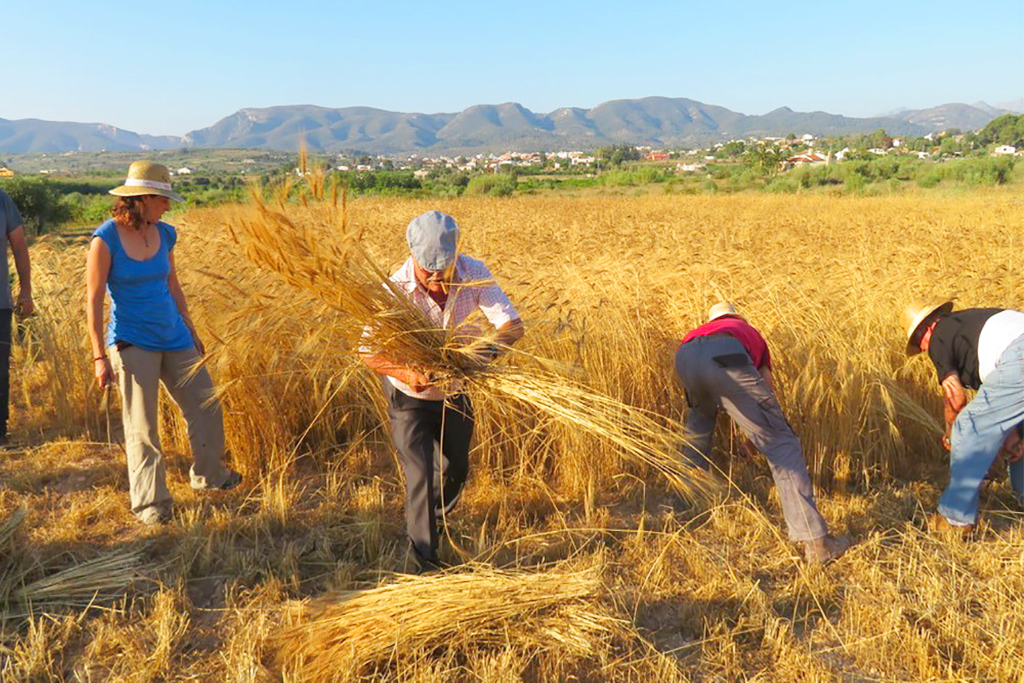
The project aims to recover the agricultural productivity of fields in Xàbia, Dénia, Gata de Gorgos and Jesús Pobre through the cultivation of different indigenous varieties of wheat that predominated in the area before the monoculture of the raisin, the same ones that in the past were cultivated in what was known as “the granary of La Marina” (Jesús Pobre). Good proof of this is the architectural heritage of mills that still stand, in the most outstanding rises of the valley or in La Plana de Xàbia. “A lot of grain was grown, but there was also a very powerful milling industry,” says Hostalet.
What does Blat de La Marina need to be sustainable? The total compatibility of all those ingredients that can guarantee its durability and sustainability through bringing together farmers, producers, transporters, bakeries, bakeries, the hospitality sector and individuals who wish to opt for healthier, tastier and very low gluten flour. A fact that has already been echoed by prestigious restaurateurs such as Ricard Camarena.
To date, the project has been linked to bakeries and a group that has created a mill, so that when wheat is sown, a percentage of the sale price to the public is already guaranteed, which allows, for the moment, to cover production costs. Viability goes through raising awareness of the genuineness of a unique treasure that can only be found in La Marina Alta.
